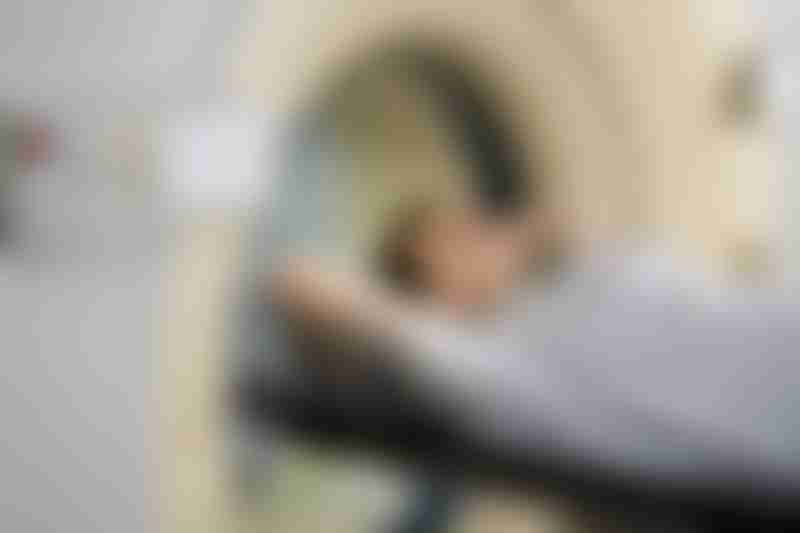What is a CT Scan?

Source: Shutterstock
Being diagnosed with breast cancer can be a devastating and unsettling experience. Your doctor may be working on staging the cancer to determine your best treatment plan, which could involve a CT scan.
Familiarizing yourself with what a CT scan entails, how it works, any possible side effects, and what to anticipate during the procedure could help alleviate some of your worries and enable you to prepare mentally.
What is CT?
Computerized tomography, also known as CT, is a diagnostic imaging technology that utilizes x-rays and computer technology to create detailed images of the inside of the body.
You may need a CT scan if:
- You have been diagnosed with breast cancer and a CT scan is needed to stage the cancer (especially if there are signs that the cancer has spread to other parts of the body).
- There are cancer cells in the lymph nodes under the arm.
- The tumor is large.
- You are undergoing treatment for breast cancer and a CT is needed to monitor tumor size during and after treatment.
If you have been advised to undergo a CT scan, there is no need to fret as it is generally a painless procedure.
How does CT work?
CT scans use x-rays taken from different angles to create cross-sectional images of organs, tissues, muscles, bones, blood vessels, and fats in your body through computer processing.
CT scans use the same technology as x-rays, but provide more detailed images by capturing multiple views of an organ or body part. A computer then produces a two-dimensional image on a monitor, allowing for better analysis of structures and details inside the body. These scans are useful for determining tumor location, shape, and size.
A contrast material or agent may be used to improve the organ's clarity in the image. This contrast is usually given orally or through an intravenous (IV) line.
Possible risks of a CT scan
Although CT scans are generally safe, painless, and quick, it is important to be aware of potential risks. These may include:
- Radiation exposure
CT scans will expose you to a low dose of radiation, but it has not been shown to cause any long-term effects. The exact amount will vary depending on how much you are scanned, though you may be assured that you will not be exposed to unnecessarily high radiation levels.
- Allergic reaction to contrast material
While most people will not react to the contrast material, some may have an allergic reaction to it. Most reactions are mild such as a rash, itchiness, or nausea, but some people may have serious reactions. If you have had a previous allergic reaction to contrast material, inform your doctor. If the contrast material is necessary, your doctor may give you medication or steroids before the scan to reduce or prevent any serious reactions.
- Bruising and swelling
There may be some bruising and swelling where the needle was put in for the contrast material. This is only temporary.
- Kidney problems
There is a slight possibility that the contrast material can affect your kidneys. Before the scan, the radiographer will check your most recent blood test for kidney function. People with kidney problems can do a CT scan without any contrast material.
- Pregnancy
CT scans are generally not recommended for pregnant women as x-rays are harmful to unborn fetuses.
Most people would not experience these side effects, so there is no need to be overly concerned. If you are worried, it is best to discuss the benefits and risks of a CT scan with your doctor. They will be able to provide personalized guidance and support.
What to expect during a CT scan
Getting a CT scan for the first time may cause some anxiety, especially since it is an unfamiliar experience. Understanding what will happen during the scan can help ease your worries.
Before the scan, you must remove all jewelry and metal objects and change into a hospital gown. If a contrast material is used, a healthcare professional will gently insert an IV catheter in your arm or leg. You can rely on them to care for you throughout the process.
When it's time for the scan, you will lie on a machine couch, typically on your back. The radiographer will guide you into position and then leave the room, but they will still be able to communicate with you.
The couch will move slowly back and forth through the scanner during the scan. You need to remain still to avoid blurring the images being captured. The scan is painless, but if you start to feel stiff or uncomfortable, you should inform the radiographer. Expect to hear some whirring sounds during the scan.
After the scanning procedure is complete, the IV line will be removed. You can resume eating and drinking as usual. Waiting for the results can be stressful, but it should be available within one to two weeks.
Feeling anxious about having a CT scan is normal, especially if it is your first time. However, please take comfort in knowing that the process is completely painless and will be over quickly. Moreover, having the scan done will be incredibly beneficial to your treatment.